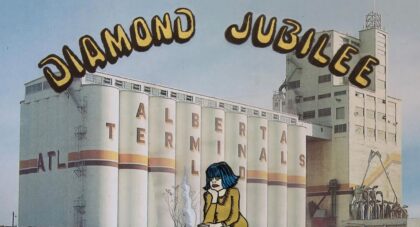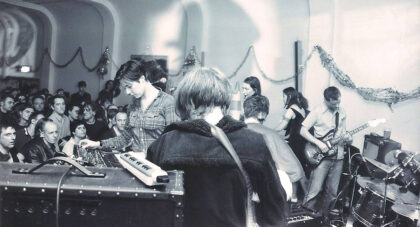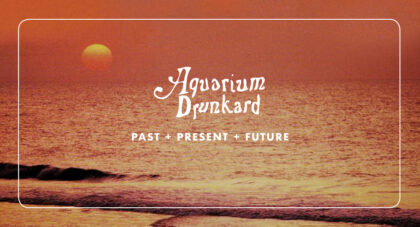Singer/songwriter, guitar man, and master storyteller Michael Chapman began his recording career with the stellar Rainmaker on the venerable Harvest label in 1969, and he’s spent the decades since exploring the common ground between jazz, rock, noise, and guitar soli. His records have been reissued by Light in the Attic, his songs performed by William Tyler, Hiss Golden Messenger, Lucinda Williams, and dozens more, and time has not diminished his output. In 2015, he released Fish, the latest in a long series of soulful and remarkable recordings. On the occasion of his 75th birthday January 24th, Aquarium Drunkard corresponded with Chapman about his long career, David Bowie, the music business, and the restorative powers of wine. | j woodbury
Aquarium Drunkard: Let’s start with your early days, playing around in the late ‘60s in London. What was the scene like then?
Michael Chapman: The early days in London? Well, that’s a popular misconception. I never ever moved into London. Others were drifting down there, like Bert Jansch, he came down from Edinburgh, and Ralph McTell who came in from Croydon. It was a very southern thing and I’m strictly a northern person. I stayed up in Hull. It was at least 75% cheaper to live in Hull than London and I’m a Yorkshire man -- I don’t waste money. But, I’d go down to London and play. A lot of places wouldn’t hire me though because I wanted the same kind of money (as little as it was in those days) as the other places I was playing up country. They would say, “Well, this is a London gig, it’s important” and I’d say, “Yeah, but these guys just have to get on the tube and across town and they’re here, whereas for me it’s nearly a 300 mile drive [round trip] , so you pay me what other places are paying me and I’ll play.” So, I steadfastly remained an outsider and all that.
AD: You recorded your first few records, Rainmaker, Fully Qualified Survivor, and Wrecked Again, with Gus Dudgeon. How would you describe your working relationship with him?
Michael Chapman: Working relationship with Gus was fine most of the time because he was good fun to work with, and he knew what he was doing — most of the time. In those days everyone, including Gus, was flying by the seat of their pants because it was all new. [But there were] complicated recording techniques and Gus knew more about it than most people — remembering it wasn’t that long back that he’d been just the tea boy at Decca. Sure, it got fraught from time to time, especially the time of Wrecked Again when we had a major fall out mostly about finance — as usual. But it was mostly good fun working with Gus. He got on really well with my bass player Rick Kemp and they were both incredible mimics, so things would often grind to a halt because everyone was cracking up. It was just too funny to work.
AD: Those albums featured string arrangements by Paul Buckmaster. At the time, what did you think of the strings? Coming from a folk background, did they sound strange to you in your songs or was that sound exciting?
Michael Chapman: I just love those string arrangements, I think they’re just an absolute masterpiece. Another misunderstanding: I never came from a folk background. That was one of the other things -- apart from being very northern -- that made me the outsider. I didn’t know anything about folk music. It’s just not my thing, or very little of it is, but I played in folk clubs because those were the only places where you could play acoustic guitar and be heard. You couldn’t take your acoustic guitar into rock clubs; we just didn’t have the technology to get it loud enough. It would just sound like the band had gone home.
Only the good shit. Aquarium Drunkard is powered by its patrons. Keep the servers humming and help us continue doing it by pledging your support.
To continue reading, become a member or log in.


